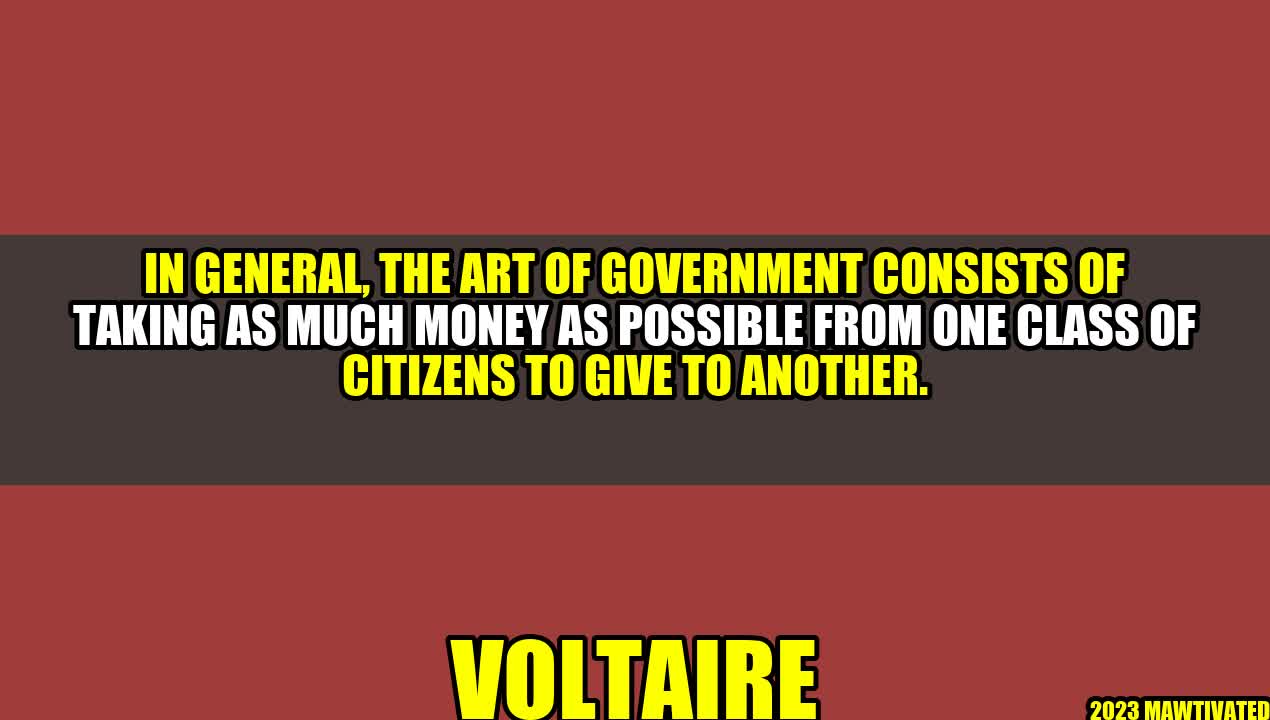The Art of Government

How to Take Money from Some Citizens and Give It to Others
An Inspiring Story: The Robin Hood Tax
Once upon a time, in the 21st century, there was a group of activists who wanted to make the world a better place. They saw that the financial sector had caused a global economic crisis, but had been bailed out by taxpayers without giving anything back. So they proposed a simple idea: tax the banks to help fund public goods and services, like education, health, and climate action. They called it the Robin Hood Tax, after the legendary hero who robbed from the rich to give to the poor.
“The financial crisis should have been a wake-up call for the world to reform a failed system, instead it became a snooze button.”
Despite fierce opposition from some quarters, the Robin Hood Tax campaign gained momentum and support from millions of people around the world. It became a symbol of a more just and sustainable economy, where the wealthiest would pay their fair share and the most vulnerable would be protected.
While the Robin Hood Tax has yet to be fully implemented, it shows that ideas can become movements, and movements can change the world. It also illustrates the art of government, which is not just about taking and giving money, but about shaping the values and priorities of a society.
The Author: Voltaire
François-Marie Arouet, better known by his pen name Voltaire, was a French Enlightenment writer, historian, and philosopher famous for his wit, his criticism of Christianity, especially the Catholic Church, and his advocacy of freedom of religion, freedom of speech, and separation of church and state. He was a versatile and prolific writer, producing works in almost every literary form, including plays, poems, novels, essays, and historical and scientific works.
Voltaire was a champion of reason and tolerance, and a fierce critic of bigotry and superstition. He believed in the power of education and enlightenment to improve the human condition. He was also a keen observer of politics, and wrote extensively on the subject, including his famous novel “Candide”, which satirized the optimistic view of life and human nature espoused by Gottfried Wilhelm Leibniz and others.
The Art of Government: Taking and Giving Money
According to Voltaire, the art of government consists of taking as much money as possible from one class of citizens to give to another. While this may sound cynical, it reflects a fundamental truth about how societies are organized and function. Governments collect taxes and use them to provide services and goods that benefit the common good, such as infrastructure, education, healthcare, defense, and welfare. The challenge is to do it fairly and efficiently, without harming the economy or creating unnecessary bureaucracy.
One way to achieve this balance is through progressive taxation, which means that people with higher incomes pay a larger share of their earnings in taxes than those with lower incomes. This is based on the principle of ability to pay, and is meant to redistribute wealth and reduce income inequality. However, progressive taxation can also create disincentives to work and invest, and can be subject to tax evasion and avoidance.
- The first practical tip is to design a tax system that is simple, transparent, and fair. This means minimizing the number of taxes, exemptions, deductions, and loopholes, and ensuring that everyone pays their share according to their income and wealth. It also means providing clear information and guidance to taxpayers, and reducing the compliance burden.
- The second practical tip is to use the tax revenue efficiently and effectively. This means investing in public goods and services that have high social and economic returns, such as education, health, research and development, and infrastructure. It also means avoiding wasteful spending, corruption, and rent-seeking.
- The third practical tip is to involve citizens and stakeholders in the tax policy and decision-making process. This means listening to their concerns, ideas, and feedback, and engaging them in a dialogue and debate about the trade-offs and priorities of taxation. It also means ensuring transparency, accountability, and participation throughout the tax cycle, from design to implementation to evaluation.
By following these practical tips, governments can better fulfill their mandate to serve the common good, and to do so in a way that reflects the art of government as a noble and necessary endeavor.
Taxation is not just about taking and giving money, it is also about shaping the values and priorities of a society.

Curated by Team Akash.Mittal.Blog
Share on Twitter
Share on LinkedIn